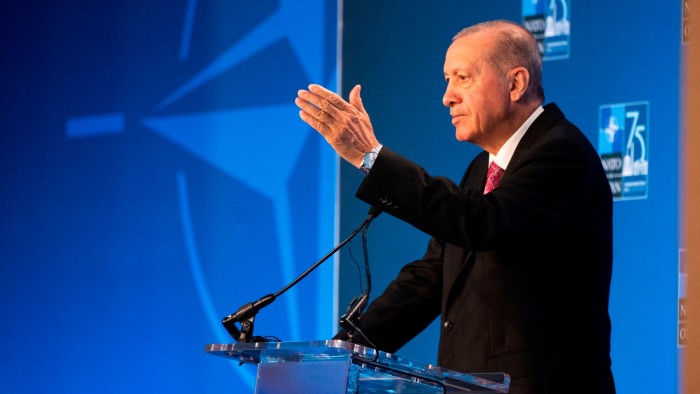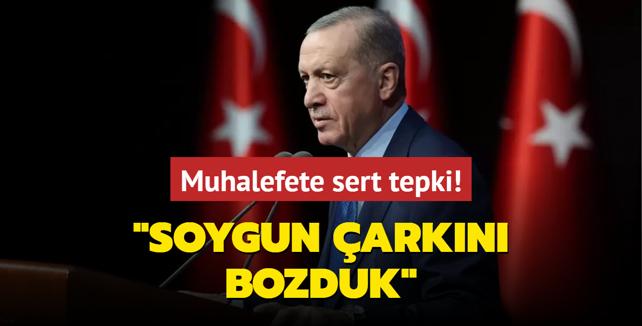Unlock the Editor’s Digest for free
Roula Khalaf, Editor of the FT, selects her favourite stories in this weekly newsletter.
Turkish President Recep Tayyip Erdoğan is set to meet top US business leaders in New York this month to end a feud with international financiers and lure investors back to the country’s markets.
Turkey’s strongman leader and an entourage of lieutenants will seek to woo investors and corporate executives in at least four events timed to coincide with the UN General Assembly in the final week of September, according to the meetings’ main organiser, the Turkey-US Business Council (TAIK), and several other people familiar with the plans.
Turkey’s outreach to corporate America comes 15 months into a sweeping economic overhaul aimed at quelling the country’s long-running inflation crisis. Ankara is also attempting to draw back foreign investors who fled as Erdoğan’s previous policies destabilised Turkey’s $1tn economy and threatened to ignite a balance-of-payments crisis last spring.
Erdoğan, Turkey’s leader of the past two decades, will host a roundtable with 20 Fortune 100 US company executives on September 23, TAIK told the Financial Times. The roster of participants includes senior executives from Wall Street banks JPMorgan and Goldman Sachs, according to a person briefed on the matter.
Goldman will host a Turkish investment conference the following day at its headquarters in lower Manhattan, featuring remarks from finance minister Mehmet Şimşek, the architect of the new economic programme, and central bank chief Fatih Karahan. Istanbul-listed companies are also expected to hold investor meetings on the sidelines of the event.
Turkish energy minister Alparslan Bayraktar and industry minister Mehmet Fatih Kacır will also host talks arranged by TAIK and Citigroup.

JPMorgan, Goldman and Citi declined to comment.
Turkey often organises business events around the UN General Assembly — Erdoğan met Tesla co-founder Elon Musk in 2023 — but this year’s programme is more intensive than in the past years as the country looks to flaunt its new economic agenda.
Şimşek, a former City of London bond strategist, vowed to restore “rational” economic policymaking following his appointment after Erdoğan’s re-election in May 2023.
He has since then unwound many of the unorthodox measures that were put in place to steady Turkey’s economy under Erdoğan’s failed policy of holding borrowing costs down at all costs. The central bank has boosted its main interest rate by more than 40 percentage points since last summer to 50 per cent as policymakers try to cool an overheating economy.
Şimşek has sought to use his personal credibility to rebuild confidence in Turkey among foreign investors and bankers, which was badly damaged by the former economic regime.
Erdoğan in 2018 blamed a shadowy group of international financial firms he called the “interest rate lobby” for a painful currency crisis. Turkish authorities the following year opened an investigation into JPMorgan for advising clients to bet against Turkey’s currency, claiming the bank had issued “misleading and manipulative” advice.
Recommended
Foreign investors have tiptoed back into Turkey’s market over the past year, while rating agencies have upgraded their assessments of the country’s creditworthiness. However, analysts say the recent inflows have been dominated by hedge funds and other short-term investors taking advantage of juicy interest rates.
Large mainstream investment houses have generally remained more cautious on Turkey’s markets, fearing an abrupt turnaround in policy as has happened several times in the past.
Major foreign direct investment announcements have also remained elusive, with corporate managers reluctant to launch long-term projects in Turkey because of concerns about the economy and broader issues such as the rule of law and independence of the country’s judiciary.






